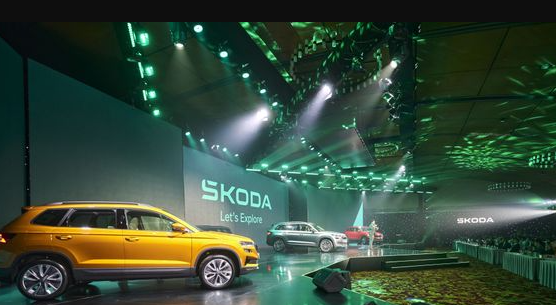
New Delhi: Amid the rapid technological advancements in the automotive industry, fostering strategic alliances and collaborations among industry stakeholders is becoming increasingly vital.
Volkswagen Group (VW), which has successful joint venture (JV) partners in China and the US, sees India as a “strategic market”. In China, the German carmaker has tie-ups with JAC Motors, SAIC, FAW and Xpeng, among others. In the US, VW has recently announced a 50-50 JV with electric vehicle (EV) manufacturer Rivian.
VW has been a long standing top-selling automaker in China. However, as the automotive sector is shifting toward electrification and local brands including BYD and Geely are growing, it has now begun to suffer from a decline in its market share in the country.
Reports also suggest German automakers are increasingly concerned about the potential repercussions of a standoff between the European Union and Beijing, particularly with new EU tariffs of up to 45.3% on Chinese electric vehicles set to take effect this week.
Amidst this, India opportunity seems big. The Group’s wholly owned India subsidiary, Skoda Auto Volkswagen India Private Limited’s (SAVWIPL) announcement of a strategic partnership with Mahindra & Mahindra (M&M) is imminent.
The automaker believes the speed of transformation in the industry is dependent on various factors including the customers’ acceptance of new technology, government regulations and globalisation. To move in line with this, taking the collaboration route is a need as companies do not have infinite resources.
“In this transformative period, the uncertainty is higher and to cover your risks you look at opportunities which can benefit both the partners. Whenever there is going to be a healthy partnership, it has to be a win-win for both,” Piyush Arora, MD & CEO of the company, told ETAuto.
“Resources for the organisations are limited and you have to decide in which direction you want to go if you have to go through this transformation phase. Then it becomes important to have opportunities of scale and partnership, where you can share some amount of resources,” he said.
The Skoda VW-Mahindra partnership is expected to leverage capacity, technology and costs for future vehicle development including EVs. It will also give good traction to the former in the domestic market, post its ‘India 2.0 strategy’. The two players already have a first supply agreement on components of Volkswagen’s MEB platform for Mahindra’s purpose-built electric platform INGLO.
Earlier in 2017, Tata Motors and Skoda Auto Volkswagen signed a Memorandum of Understanding (MoU) at the Geneva Motor Show to explore a long-term cooperation for joint product development. However, the strategic partnership plan was soon called off and hit a dead-end.
History of collaborations
Globally, the automotive industry has a rich history of collaborations among its players which has been essential for driving innovation and growth. For instance, the Renault- Nissan- Mitsubishi alliance is one of the most renowned examples of successful collaboration.
Toyota Motor Corporation and Suzuki Motors have tied-up on technology sharing and rebadging their vehicles. Toyota’s India business has been the biggest beneficiary of this global partnership.
Ford and Volkswagen announced a broad collaboration on electric and autonomous vehicles in 2019.
In the same year, Ford and Mahindra also proposed a joint venture in India to develop SUVs for the country and the emerging markets, as well as share suppliers, powertrains and technology. However, the deal, which would have ended most of Ford’s independent operations in India, was called off on December 31, 2020.
In 2011, Toyota Motor Corporation and BMW Group signed an agreement to establish a mid-long-term cooperative relationship.
Industry experts anticipate a marked rise in collaborations within the automotive sector in the coming years.















